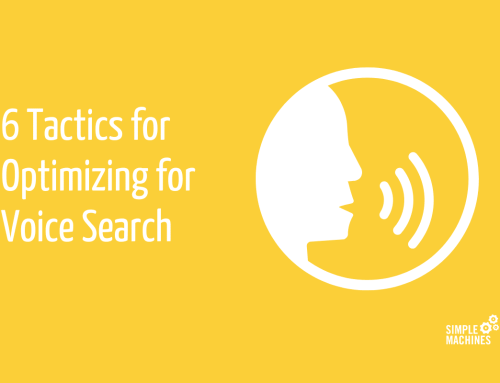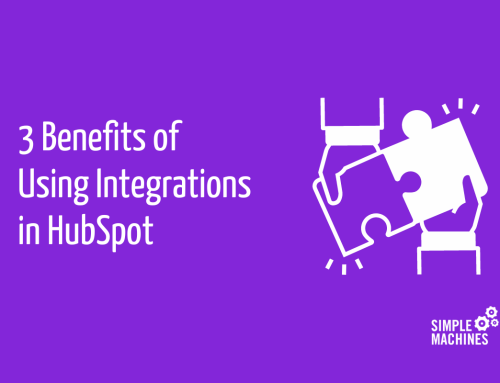As you’re probably aware, keywords play a huge role in digital marketing and SEO. It’s essential for your business to rank high for a targeted set of keywords so that customer’s unfamiliar with your business can find you.
But as search engines have evolved and consumers have become more fluent with these tools, the ways in which we search has begun to change, casting some doubt on the efficacy of keyword targeting.
Some marketing software companies are even prepping their users for a future where they are much less reliant on traditional keywords while still relying on SEO to generate leads.
Here’s what you need to know.
The Changing Nature of Search
Search on the internet has seen some drastic changes since its early days.
Recently, I was watching the truly terrible 2004 superhero movie Catwoman starring Halle Berry. It was for a bad movie night, so this was on purpose — don’t judge me — but at one point Berry, who has been brought back to life by cats and has magic powers now (it’s really, really bad), types “cats. women” to learn more about… whatever has happened to her.
Now this is a ridiculous example, but it’s a reminder that search used to be much less intuitive than it is now.
Today, artificial intelligence (AI) likely finishes most of your searches for you before you can type more than a word or two, and the quickly growing popularity of voice search and smarter engines means people are switching from keyword-based searches — “Chicago restaurants” would be a keyword search — to conversational search queries — “restaurants near me” — in higher numbers.
So, Halle Berry would instead probably say something like, “Alexa, why do I have cat powers?” if the movie was released in 2018.
What this all means is that that there are more things to consider when trying to rank for organic searches today than ever before, and some are beginning to think there might be a different way to drive organic search traffic to your website outside of a traditional focus on keywords.
Content Topic Clusters
One notable alternative being promoted by marketing and sales software provider HubSpot is known as “Topic Clusters.”
As HubSpot writes in their guide to this strategy, “influential search engines like Google have changed their algorithm to favor topic-based content.” To capitalize on this change, SEO experts have switched to this topic cluster model, which essentially looks to box up various pieces of content you’ve created into their own areas to increase visibility.
So, for example, we might build a topic called “Video Marketing” which combines all the blogs we’ve written on the subject along with any relevant offers.
We would then take all of the information contained in these articles and create a “pillar page,” essentially one long webpage that houses all of your expertise on this topic. Throughout the page, you would then link to these different blog posts where appropriate in the text and link to the pillar page from the blogs.
HubSpot is arguing that a pillar page increases the odds of your content being discovered. Here’s how they put it:
“By linking all internal content within that topic to a pillar page, search engines such as Google, Bing, or Yandex can easily scan all the content and understand that there is a semantic relationship between the pages’ content. The cluster setup also signals to search engines that there is real breadth and depth in the content, which gives the pillar page more authority on the topic. Algorithms like Google’s RankBrain reward this orderly linking with higher search placement.”
It makes sense. You can worry less about exact match keyword usage and more about defining what topics you want to rank for and creating valuable content that speaks to those topics. Just put all your content on a topic in one place, link back and forth between that page and related pieces of content, increase the value Google assigns to it and see enhanced traffic.
Don’t Ditch Keywords
So, should you ditch keywords and dive right into building content clusters? No, not exactly.
While content clusters are a good way to drive visitors to your content, you shouldn’t ditch your keyword strategy entirely — especially when it comes to paid keywords. AI and voice search may be growing in popularity, but most searches still occur in a browser. When someone hops on their computer at work to search for a specific phrase that aligns directly with your services, you want to come up, and paid search remains an effective channel to do this for many businesses.
Pillar pages and content clusters, on the other hand, represent a relatively new strategy, but the initial results seem promising — and we’re speaking from firsthand experience. You can take a look at a pillar page we built based around the topic of helping manufacturers at trade shows by clicking here.
It’s important to note that not every business will have enough content for pillars and clusters, but thinking in terms of ranking more broadly for topics is still a good idea. At the very least, it can help your organization define what it is about your services that stand out and create high-quality pieces of content.
In short, don’t ditch paid search keyword targeting just yet, give alternatives like topic clusters a shot and whatever you do, don’t watch Catwoman, even as a joke.












